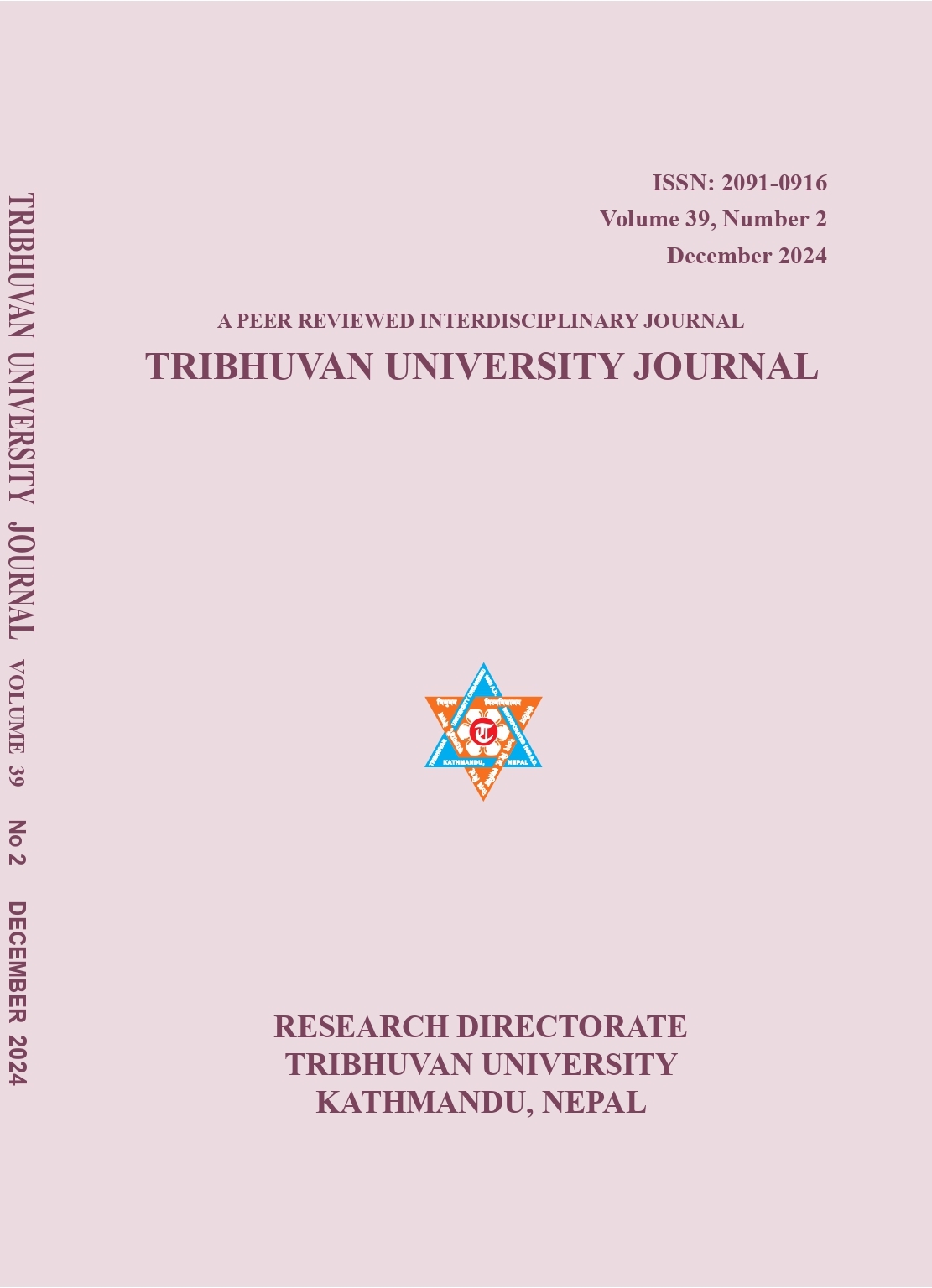Extended Producer Responsibility (EPR) in Nepal: A Transformative Policy Strategy for Sustainable Waste Management
DOI:
https://doi.org/10.3126/tuj.v39i2.72999Keywords:
Extended Producer Responsibility, EPR, Nepal, waste management, environmental policy, circular economyAbstract
In response to Nepal's escalating waste management crisis due to rapid urbanization and evolving consumption patterns, this article examines Extended Producer Responsibility (EPR) as a transformative policy approach to enhance environmental sustainability. EPR, which extends a producer’s accountability to the product's post-consumer phase, is particularly relevant for addressing Nepal’s unique waste challenges. This study aims to provide a detailed analysis of Nepal’s current waste management obstacles, the principles of EPR, and the potential pathways and benefits of EPR implementation. The research employs a doctrinal approach, including case studies from other nations to assess feasibility and derive applicable best practices. Findings reveal that EPR implementation could significantly reduce waste generation, promote a circular economy, and alleviate financial strain on municipalities, though challenges such as regulatory gaps and infrastructure limitations persist. The article underscores EPR's potential in transforming Nepal's waste management landscape and offers strategic insights for policymakers aiming to align with Nepal’s broader environmental sustainability goals.
Downloads
Downloads
Published
How to Cite
Issue
Section
License

This work is licensed under a Creative Commons Attribution-NonCommercial 4.0 International License.
This license enables reusers to distribute, remix, adapt, and build upon the material in any medium or format for noncommercial purposes only, and only so long as attribution is given to the creator.
© Center for Research, Tribhuvan University

